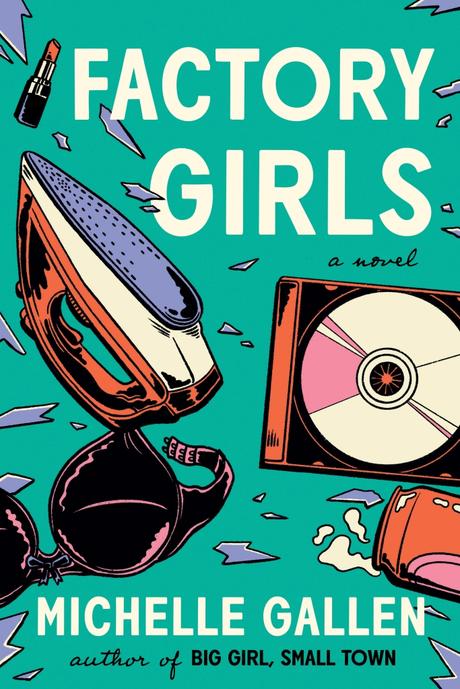
I loved Gallen’s Big Girl, Small Town, so I was happy to receive an advanced review copy of Gallen’s second book. I highly recommend her for anyone who’s looking for something similar to Derry Girls. I enjoyed this book quite a bit, though I didn’t love it as much as Gallen’s first book. As a historical novel, I got a much better understanding of The Troubles from this book than I did from either Big Girl, Small Town or Derry Girls. This book is darker in tone from Big Girl, which was more about a day in the life of its main character, where this one focuses more on IRA violence and how it impacts the characters. And while I appreciated that, I didn’t love Maeve as much as I did Majella, nor did I find this book as funny or as touching.
Maeve is smart and itching to get out of her small town. Like her friends, she’s waiting on her exam results to find out if she can study in London. In the meantime, they’re working in the shirt factory, avoiding their creepy boss, and preparing for the next stage in their lives. While going to London is all Maeve has ever dreamed of, she’s also terrified to leave.
What I liked a lot in this book was the way Maeve goes from knowing no Protestants to working side by side with them and even considering some of them friends. I like the way she grows beyond her very small circle of friends and builds her independence. I particularly appreciated the way Gallen shows the hardships the people in this town lived with every day; bombings are a regular occurrence and everyone knows someone who was injured or killed. The hatred the Protestants and Catholics feel for each other felt very real in this book, even though it also seemed completely unreasonable.
I think the main reason I didn’t love this book as much as Big Girl is that Maeve could be a difficult character to like a lot of the time, and I didn’t feel I got to know her very well. Her decisions don’t feel well thought out and she comes off as callous to her best friends and her friend’s brother, who’s interested in her. I didn’t come away with a sense that Maeve is close to any of her friends or her family (and maybe that’s why she hates her small town so much). I could completely understand her discomfort with Aiofe’s wealth and status, yet was disappointed that when her friend needs her she isn’t really there for her.
The author spends a lot of time on the suicide of Maeve’s older sister, but besides showing us that, it isn’t that clear how Maeve has been impacted, nor does the author explore other things about Maeve, like why she wants to become a journalist. I liked that Maeve was tough and confident and I also appreciated her sexuality. Some of the scenes between her and the factory owner were the most interesting because Gallen creates a lot of emotional and sexual tension. Maeve’s no innocent; she knows Andy abuses the factory girls and she’s both drawn to him and afraid of him.
But with her friends she seemed oddly indifferent – she has no opinion about her roommate’s new boyfriend or how Aiofe will feel if she gets together with her brother, or even any consideration about whether they will stay friends after they go their separate ways.
I listened to Big Girl, Small Town on audiobook with Nicola Coughlin’s fantastic narration. It’s likely that I missed some of the tone of this book by reading it instead of listening to it, and that’s why it felt a little bit flat to me. I also loved that most of Big Girl was set in Majella’s job at the chip shop. In this book, the factory was certainly interesting, but lacked detail about the day to day work, other the payroll and occasional work events.
Thanks to NetGalley and publisher Algonquin Books for this advance review copy and the opportunity to participate in a review tour. This book was released on November 29, 2022.

